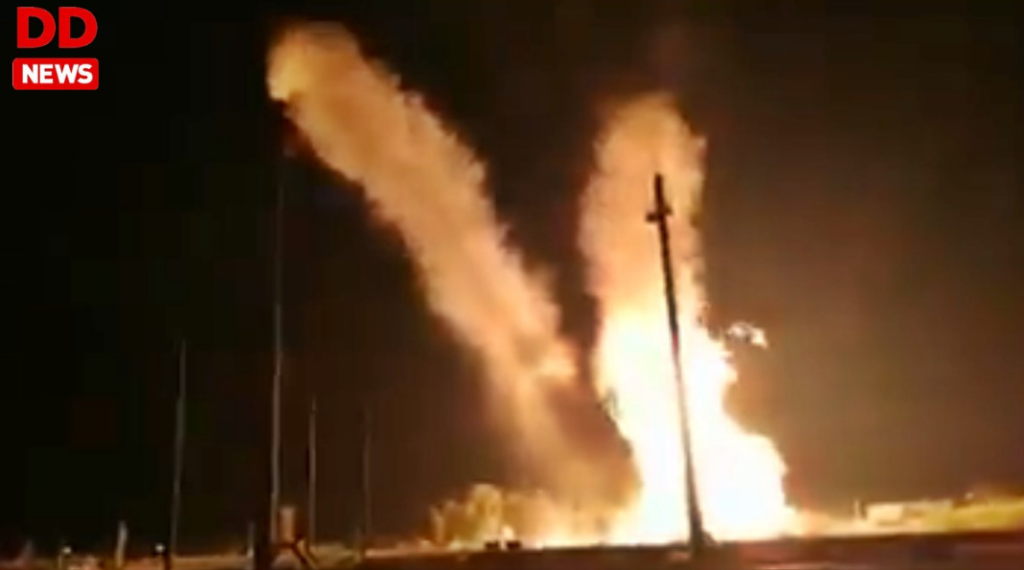Balochistan Liberation Tigers, an organization fighting for the independence of Balochistan against Pakistani oppression has taken the responsibility of a gas pipeline blast in the state. The blast claimed the lives of 4 security men. “Video from Occupied Balochistan shows Baloch guerrillas scoring a direct hit on a gas pipeline near Sui and Dera Bugti that steals natural gas to Punjab,” tweeted Canada based Pakistani political commentator, Tarek Fateh.
Video from Occupied Balochistan shows Baloch guerrillas scoring a direct hit on a gas pipeline near Sui and Dera Bugti that steals natural gas to Punjab. pic.twitter.com/1l7aoTJTIM
— Tarek Fatah (@TarekFatah) March 9, 2019
The Baloch Liberation Tigers was founded in 2011 to advance the cause of freedom of the territory from the high handedness of Islamabad. The group has launched protests against the supply of natural gas from Balochistan to the Punjab province of Pakistan. The organization is also against Pakistani state conducting elections in the region, “We request all baloch people not to attend rallies of baloch leaders and do not vote to anyone, rather be at home and pray for success of our sarmachars,” said the organization.
Previously, a few days after Pakistan backed terrorists attacked the security forces in India and Iran, a suicide bomber killed at least 9 people and injured 11 in Quetta, Balochistan. On February 17, the attack happened on the China Pakistan Economic Corridor (CPEC) route between Panjgur and Turbat city. An organization named Baloch Raji Ajoi Sangar (BRAS) has taken the responsibility of the attack. BRAS is an alliance of three organizations (Baloch Liberation Army, Balochistan Liberation Front and Baloch Republican Guard) fighting for the freedom of Balochistan.
The Baloch nationalists have waged a war against Pakistan’s colonization. Balochistan has been fighting for its freedom as the state of Pakistan has continued grave human rights violation and exploited the natural resources of the province and its coastlines. China is developing an economic corridor with investment worth 46 billion dollars but the local citizens have very little stake in the project. Every political party blames the other for the lack of development in the state but none of them appear ready to give Balochistan its due share.
The province is rich with natural resources like gold, copper, silver, oil, and gas. The province covers 44 percent of Pakistan’s land area but accounts for only 5 percent of its population. The Gwadar port being developed to promote trade and investment is poised to only benefit business elites based in Karachi and political elites based in Islamabad. The Rawalpindi based Pakistan Army also has stakes in the province while top military officers exploit its natural resources for monetary benefits.
Moreover, the share of the state in national GDP declined from 4.9 percentage in the mid-1970s to 3.7 percent. The GDP per capita of the state is 740 dollar per year in comparison to 1,577 dollars for Pakistan and 1,748 for Sindh. Both the states have more than double the per capita income of Balochistan despite the fact that it contributes the most to Pakistan as far natural resource is concerned. The natural resources of the state are exploited by industrialists but the local people do not get a fair share of these resources.
The economic inequality coupled with natural calamities and excessive violence by the Pakistani state and Army will further alienate the Baluchi people. The Baloch nationalism will be fuelled as the atrocities by the state only intensifies in Balochistan. Blast like this is suggestive of the fact that the the people of Balochistan have decided to get rid of Pakistani brutalities. The human rights violation on the part of the Pakistani state may well push the state of Balochistan towards an armed rebellion.
